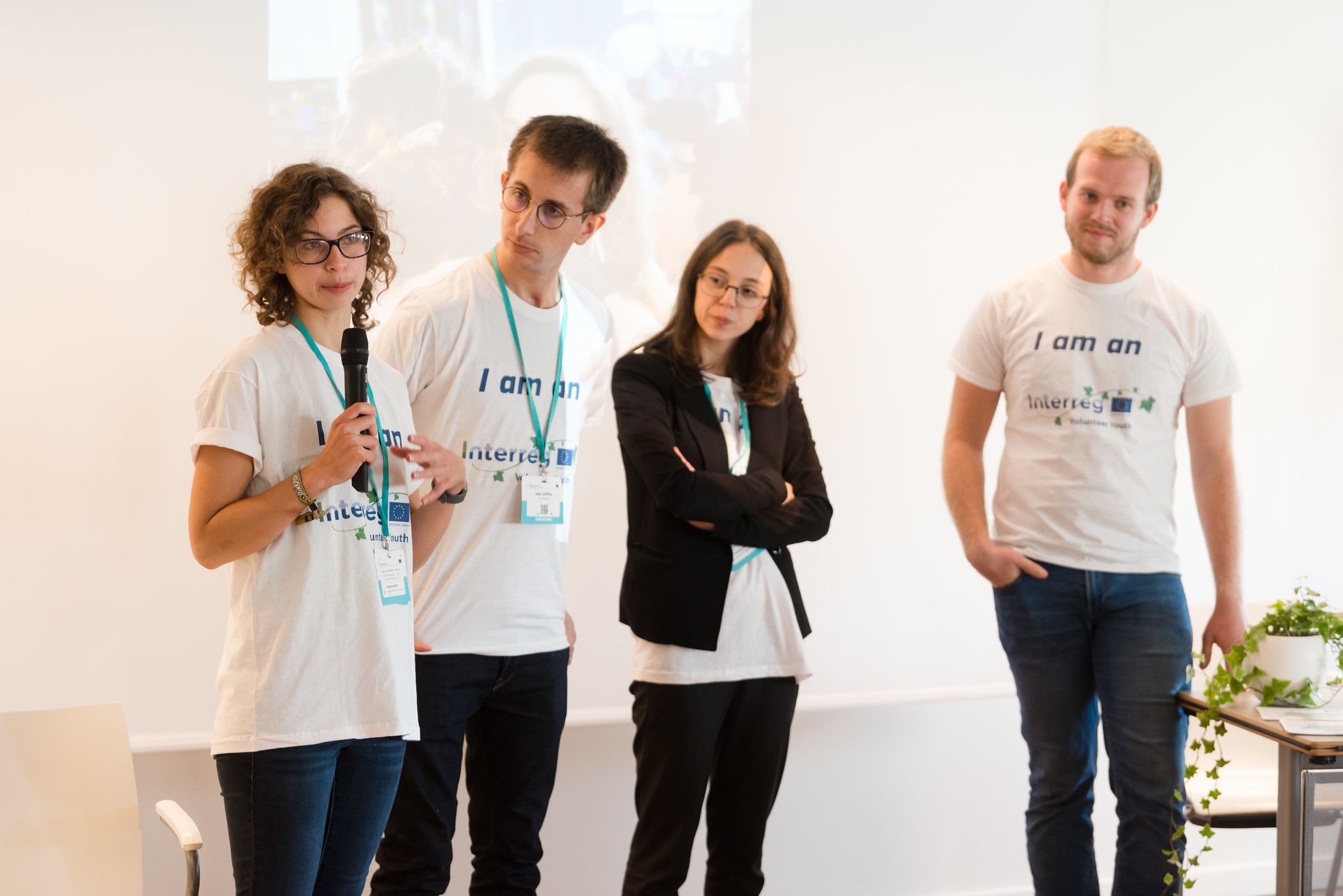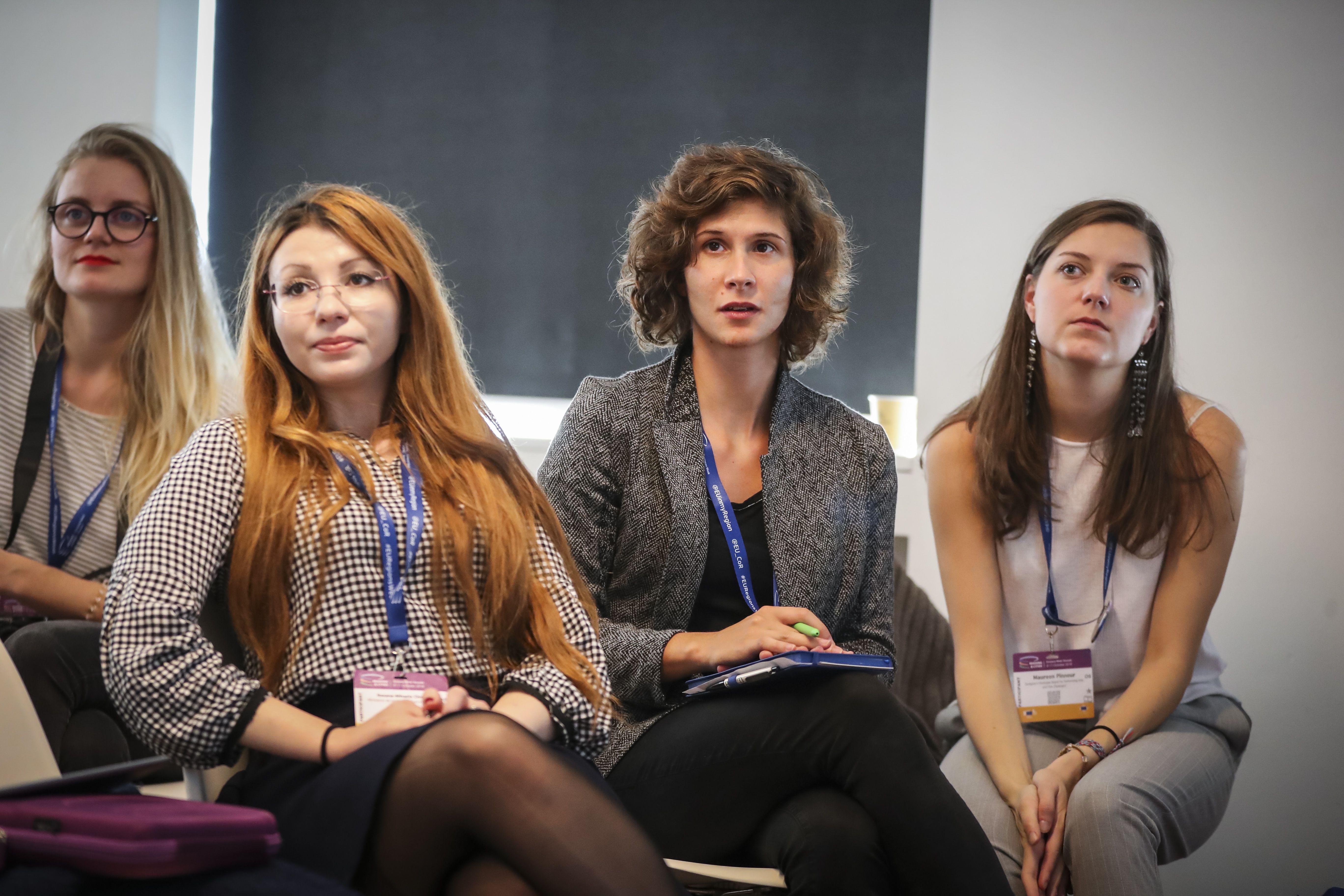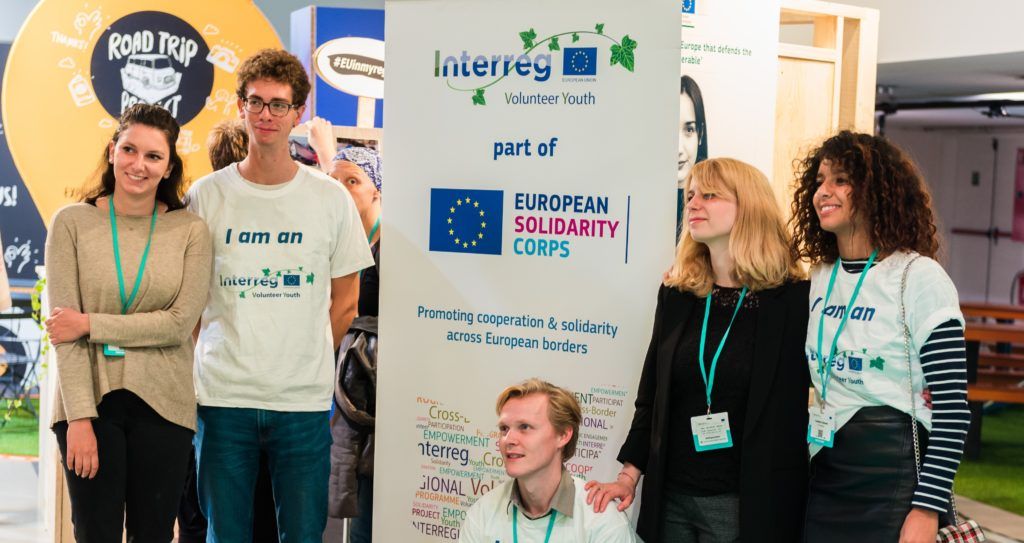ENI CBC young volunteers crossing all borders
“There is a need to show European citizens how many benefits the European projects have to offer and that they truly change lives” (Natalia Popielska, a young Interreg volunteer from Poland). Hundreds of young people like Natalia are leaving on this mission around Europe thanks to Interreg Volunteer Youth (IVY) initiative. IVY initiative offers young people a unique opportunity to participate as volunteers in EU funded cross-border, transnational or interregional programmes and projects, and to promote their concrete achievements through personal experience.
How would you like to expatriate and support the communication of an EU funded project? If you are between 18 and 30 now you can. Whether you live in Europe or in a Partner Country, you can register in a special portal and wait to be selected. It is called “Interreg Volunteer Youth” (IVY) and it is an initiative part of the broader European Solidarity Corps Initiative launched by the European Commission to foster solidarity and to provide Interreg programmes and projects with valuable support. It is the Association of European Border Regions (AEBR) to manage IVY, from finding volunteers to monitoring the experience: they serve as the contact point for both host organisations and volunteers.

Since its launch in 2017, almost 400 volunteers have joined IVY. So far, it was open to Interreg programmes/projects and EU citizens only. As from January 2020, the initiative addresses as well cross-border cooperation programmes under the European Neighbourhood Instrument (ENI CBC) and related projects, inviting to participation the CBC Partner Countries[1]. Any ENI CBC Programme, National Authority or project beneficiary can become an IVY host organisation. We have talked to Cinzia Dellagiacoma, AEBR project and communication manager, who works on the IVY initiative.
How does IVY work for the ENI CBC programmes?
In principle, the initiative will work in the same way as for the Interreg Programmes. The ENI CBC programmes can host young volunteers (Reporters) who help to disseminate information on the benefits of cross-border cooperation on the ground, through reporting on successful projects implemented. Reporters are therefore deployed either in the offices of the Managing Authorities or/and the Joint Technical Secretariats.
Projects can also host volunteers: how does it work for them?
ENI CBC project beneficiaries can host young volunteers (Project Partners) who help to implement projects focusing on a social dimension, for example people-to-people, health or community-based projects, etc. The good news is that project beneficiaries located in Partner Countries can host young volunteers too.
Which documents are necessary from a programme or a project point of view?
The application process to host an IVY volunteer is quick and easy: just one document for an ENI CBC programme, two for ENI CBC project beneficiaries, a call with the candidate(s) and the signature of the final agreement. AEBR takes care of all the organisational and administrative arrangements.
How can young candidates participate?

Young people should first register in the European Solidarity Corps Youth Portal and send their reference number to AEBR: if their profile fits the needs of one offer, it will be shared with the host organisation. The profiles are chosen for each offer considering the host organisation’s specific needs in terms of language skills and other competences which are essential to be able to support activities planned. The host organisation chooses the successful candidate(s) by setting up interviews with all or some of the pre-selected candidates, and informs then the selected volunteer.
How will the IVY initiative be implemented in the countries of the ENI CBC area?
There are four scenarios: EU citizens volunteering outside the EU; non-EU citizens volunteering outside the EU, in their home country; non-EU citizens volunteering outside the EU in a country which is not their home country; non-EU citizens volunteering inside the EU. In all cases, every volunteer will be staying for a minimum of 2 months and a maximum of 6 months, and will receive a financial support depending on the country of deployment. All volunteers will receive full insurance coverage and a financial contribution to travel costs, too.
What about visas?
The costs will be sustained by the project: we will transfer the costs to the volunteers on top of the contribution to the travel costs. AEBR will also assist the volunteers to file visa requests and coordinate with host organisations in case of specific requirements, for example, invitation letters and other administrative papers if required.
Interreg Programmes highly appreciate the support they have received from the volunteers in improving communication outputs, managing social media, and enhancing visibility of the programmes’ achievements. The young Interreg volunteers are enthusiastic about their experience too! Sara Pettinelli, a volunteer at Interreg Sudoe programme, says: “SUDOE’s office is very active and dynamic and in the last month I learnt a lot on transnational cooperation and the projects developed by the Programme. I daily work in the Communications and Capitalization Office, close to my amazing mentor. We carry on different activities such as the project “Humans of Sudoe” which is a collection of testimonies of the recipients of SUDOE’s projects. This initiative gives voice to the final users of the projects which is a way to see the benefits of transnational cooperation and learn about the results of the projects”.
By the way, Sara has been hired by the programme at the end of her volunteering period…
To know more, visit the IVY website: www.interregyouth.com
More details on how to host a volunteer can be found here.
The European Solidarity Corps Youth Portal already allows registration of young people from CBC partner countries.

[1] Algeria, Armenia, Belarus, Georgia, Egypt, Israel, Lebanon, Palestine, Republic of Moldova, Russia, Tunisia and Ukraine
